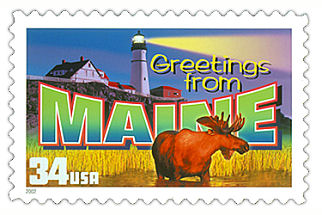Daily Fantasy Sports Legalized in Maine
With the NFL’s preseason schedule starting this week, it’s time to start getting our brains back in gear for fantasy football. And just in time, Maine became the fifteenth state to officially legalize daily fantasy sports as Governor Paul LePage failed to take time out from his busy Tuesday of probably saying obnoxiously racist things to act on a DFS bill, meaning that it automatically became law.
 “An Act To Regulate and Tax Sports Fantasy League Activities in Maine” was introduced by State Senator Roger Katz on April 4th of this year and was given the bill number LD (Legislative Document) 1320 / SP (Senate Paper) 499. It passed the House with amendments on June 29th by a vote of 90 to 53, with seven members absent and one excused. It passed the Senate on July 20th, though no roll call is recorded on the bill’s web page, so we don’t know exactly what the vote count was there.
“An Act To Regulate and Tax Sports Fantasy League Activities in Maine” was introduced by State Senator Roger Katz on April 4th of this year and was given the bill number LD (Legislative Document) 1320 / SP (Senate Paper) 499. It passed the House with amendments on June 29th by a vote of 90 to 53, with seven members absent and one excused. It passed the Senate on July 20th, though no roll call is recorded on the bill’s web page, so we don’t know exactly what the vote count was there.
Co-sponsoring the bill were State Representatives Jeffrey Timberlake, Bradlee Thomas Farrin, and Jared Golden, and State Senators Andre E. Cushing III, Troy Dale Jackson, and Garrett P. Mason.
Usually, when states make some sort of legal ruling on daily fantasy sports, either DraftKings or FanDuel or both issue statements on their websites applauding or decrying the decision. This time, Marc La Vorgna, a spokesman for both market leaders, issued a statement, acquired by Legal Sports Report:
Maine is now the 15th state to adopt a regulatory framework to protect the right to play fantasy sports, protect consumers and help a booming piece of the tech economy continue to grow. Thanks to action by the legislature — led by Senators Carpenter, Jackson, Katz, and Mason, and Representatives Dillingham, Farrin, Golden and Luchini — up to 200,000 Mainers will continue to enjoy our new national pastime — fantasy sports — under a framework of sensible, light-touch consumer protections.
That is a fairly vanilla “thank you” statement, though it may be interesting to note that La Vorgna has a history with daily fantasy sports. He was formerly press secretary for New York Mayor Michael Bloomberg and when DraftKings and FanDuel were fighting the state of New York for the right to offer their contests to New Yorkers*, he and Bradley Tusk, who led Bloomberg’s third mayoral campaign in 2009, organized a rally outside Scheiderman’s office for DFS fans who wanted to play their favorite games again. The rally was criticized by some as being a “fake grassroots” demonstration launched by FanDuel employees (FanDuel is headquartered in New York), but while La Vorgna said some FanDuel employees did participate, they made up less than 25 percent of the 300-person crowd.
La Vorgna resigned his press secretary job and position as communications director of Bloomberg Media Group last spring to start his own media strategy and communications firm, MLV Strategies.
Back to the Maine DFS bill (well, law), it is mostly the same old, same old, with a legal customer age of 18, the requirement that operating funds be separate from player deposits, a ban on third party scripts, and so on and so forth.
The real difference between this and daily fantasy sports laws in other states comes from the amendments, which defined the fees involved. Maine is much more lenient when it comes to fees and taxes than are other states. In fact, if a DFS operator makes less than $100,000 in gross fantasy revenues in the state, it does not have to pay separate DFS taxes on it, nor does it have to pay a licensing fee.
For those who do make more than $100,000 a year – and that would only be DraftKings and FanDuel – the annual licensing fee is just $2,500. Taxes are only 10 percent per year and the initial registration fee is 10 percent of gross fantasy revenue, with a cap of $5,000.
There could be a couple different things going on here with these extremely low taxes and fees. Maine lawmakers could just be realistic, knowing that their state is small in terms of population, so revenues that operators will make from players in the state can only amount to so much. It could also be a way to encourage competition with low barriers to entry. In some states, particularly when it comes to proposed online poker and online casino games legislation, the licensing fees are well into the millions of dollars, making it near impossible for small operators to even take a shot. It’s not that launching a DFS operation doesn’t cost anything, but with no fees or additional fantasy revenue taxes for small firms, giving it a go, even against DraftKings and FanDuel, is a real option.
*New York Attorney General Eric Schneiderman declared DFS illegal and made DraftKings and FanDuel stop operating in the state in March 2015. New York Governor Andrew Cuomo signed a bill that legalized DFS in April 2016.



















COMMENTS